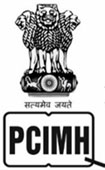Designed & Developed by M/s Akiko Sherman Infotech, Hosted by NIC/NICSI Content Provided by Pharmacopoeia Commission for Indian Medicine & Homoeopathy
Unani
The Unani system of medicine owes, as its name suggests, its origin to Greece. It was the Greekphilosopher-physician Hippocrates (460-377 BC) who freed Medicine from the realm of superstition andmagic and gave it the status of Science. The theoretical framework of Unani Medicine is based on theteachings of Hippocrates. Unani Medicine got enriched by imbibing other contemporary systems of traditionalmedicine in Egypt, Syria, Iraq, Persia, India, China and other Middle East and Far East countries. Unani system of medicine was introduced to India by the Arabs, and soon it took firm roots in the soil. The Delhi Sultans, the Khiljis, the Tughlaqs and the Mughal Emperors provided state patronage tothe scholars and even enrolled some as state employees and court physicians. At, present Unani system of Medicine is one of the Indian Systems of Medicine and has a long and impressive development record in India. Today, India is the world leader in Unani Medicine having largestset up of Educational, Research and Healthcare Institutions.
PCIM&H in co-ordination with Unani Pharmacopoeia Committee (UPC) publishes/validates/arranges various activities regarding official formularies (i.e. National Formulary of Unani Medicine), Pharmacopoeial quality standards of single drugs of plant/animal/mineral origin (i.e. Unani Pharmacopoeia of India, Part I) and their formulations in various dosage forms (i.e. Unani Pharmacopoeia of India, Part II) at suitable intervals and of such addenda or supplementary compendia during the intervening periods as may be deemed necessary. These formularies and pharmacopoeias serve as official compendia of standards under the Drugs and Cosmetics Act, 1940 pertinent to quality standards of the Unani Medicine.
Activities
- To provide technical support to Unani Pharmacopoeia Committee (UPC) and subcommittees under Scientific Advisory Board (SAB) of PCIM&H
- To provide technical support to manufacture of compound formulations of Unani medicine, characterization and providing classical references
- Developing Standard Operating Procedures (SOPs) of Unani drugs
- Technical review and support to publish Unani Pharmacopoeia of India (UPI) for single drugs, formulations, National Formulary of Unani Medicine (NFUM)
- Research & Development and publishing related scientific information
- Any other technical and non-technical work pertaining to Unani













